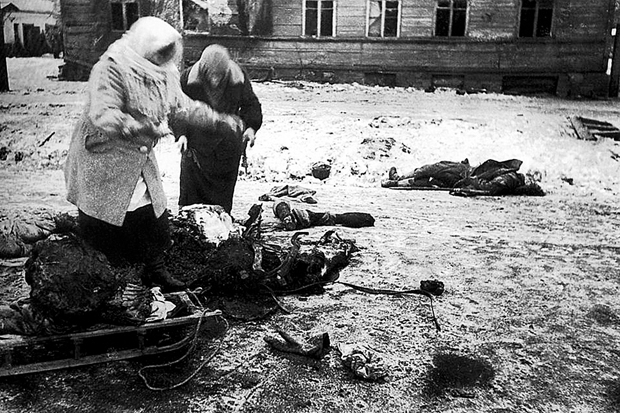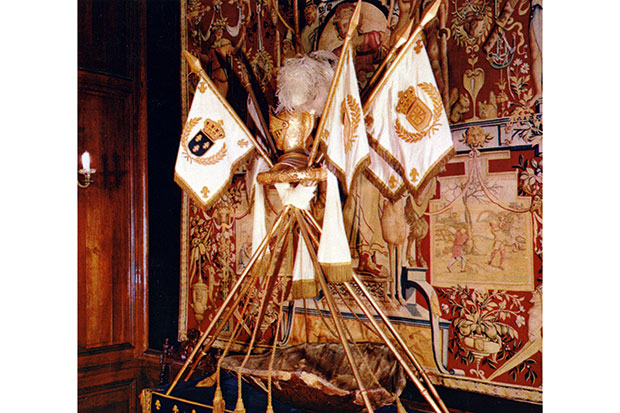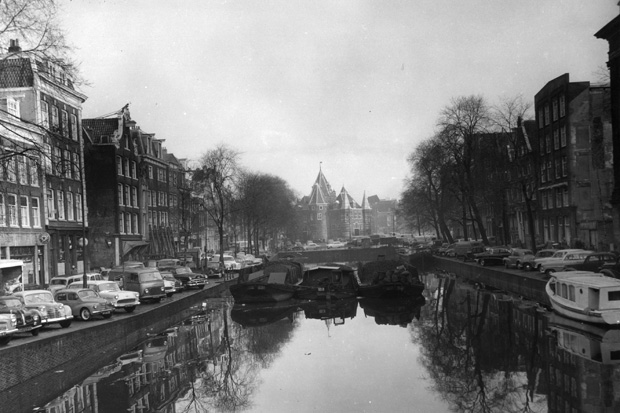Stand aside, Homer. I doubt whether even the author of the Iliad could have matched Alexis Peri’s account of the 872-day siege which Leningrad endured after Hitler’s army encircled the city in September 1941. I never knew, for example, that if an adult starved for months on a few ounces of bread daily, a sip of soup and very little water — if they were lucky enough to get their daily rations — you couldn’t tell when they were naked whether they were male or female. I wouldn’t have believed that starving parents might eat their dead children, or vice versa; yet 1,500 Leningraders were arrested for cannibalism. When people were standing in line, hour after hour, hoping to receive their tiny rations, if someone dropped dead, those alert enough rushed to steal their ration card. I never expected that one effect of ‘the battles with the body’ was apathy, a sign that death was near — ‘the indifference of the doomed’, as one of the diarists, quoted here, puts it — indifference not so much to their own condition but to the fate of their once nearest and dearest. ‘The best way to survive was to draw an even tighter ring around oneself.’
Then there was the corruption. Those in charge of food supplies, and of dishing out the meagre rations, often stole food for themselves — you could tell by looking at them — or exchanged it for sexual favours. So, when you saw a plump, pretty girl with lovely hair and colour, you always knew why she looked so good. One diarist wrote:
The salespeople are robbing us blind. In exchange for bread, they have everything they want. Almost all of them, without any shame at all, wear gold and expensive furs. Some of them even work behind the counter in luxurious sable and sealskin coats.
During the agonies of cannibalism, theft, violence and corruption, nearly one million Leningraders died — almost half the population — including many killed by the ceaseless shelling and bombing.
The eloquent, thoroughgoing and inquisitive Peri, who teaches history at Boston University, examined eight archives to get his hands on some of the 125 diaries of survivors, along with studies of the Leningrad siege, and research on sieges generally, including their physical and psychological effects.
What the diarists were doing — and there were a great many, Peri suggests —in addition to trying to stay sane, was working to ‘name, clarify, diagnose and otherwise make sense of the medical nightmare in which they were trapped’. And not just the medical nightmare, but the political, social, familial and personal nightmares in which they all floundered. Even time collapsed, as clocks and church bells stopped recording it.
In Stalin’s Moscow all this was supposed to be a glorious second Fatherland War, like the one Tolstoy created in War and Peace, this time led by Stalin (who had fled Moscow when Hitler invaded). But when the Leningrad blokadniki read Tolstoy they experienced not inspiration but puzzlement. The Rostovs weren’t starving; they could leave Moscow with cartloads of belongings, and few of the major characters died.
Peri contends that while the diarists were rarely subversive or anti-Soviet, what they generally recorded was despair, pain and terror. Their insights and reflections fell outside the Party line of heroism and hope. Stalin was eager, once the siege was lifted and, later, the war ended, to re-establish his view of events, past and future. What the Party apparatchiks demanded were not ‘everyday hardships’ that ‘obscured and overpowered… military struggles and
victories’.
Once this became clear, some diarists inevitably redacted their manuscripts, striking out passages that portrayed hopelessness and fear. Within a year or two of the siege ending, many diaries were impounded, and remained unread until Peri retrieved them. Party commissions arrived from Moscow on the look out for ‘blockade sedition’ and seized thousands of books and hundreds of thousands of documents. Journals were shut down because they represented ‘enemies of the people’. New publications appeared, with titles like Comrade Stalin: The Inspiration and Organiser of the Defeat of Nazi Troops near Leningrad. The Leningrad museum, founded soon after the Nazi defeat, was closed in 1948 for ‘fostering the myth of Leningrad’s special
victimhood and heroism’, and for creating ‘a myth designed by traitors trying to diminish the greatness of Comrade Stalin’.
Even today, as Peri concludes his magnificent narrative, despite many books and studies, anniversaries and tributes,
strong taboos remain. These silences are a legacy of those brutal years, when local efforts to make ordinary Leningraders the siege’s chief documentarians were crushed.
Got something to add? Join the discussion and comment below.
Get 10 issues for just $10
Subscribe to The Spectator Australia today for the next 10 magazine issues, plus full online access, for just $10.
You might disagree with half of it, but you’ll enjoy reading all of it. Try your first month for free, then just $2 a week for the remainder of your first year.














Comments
Don't miss out
Join the conversation with other Spectator Australia readers. Subscribe to leave a comment.
SUBSCRIBEAlready a subscriber? Log in